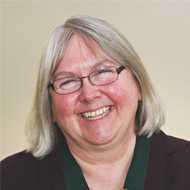
"Exceptional contribution" to be recognised by RCVS
An annual award, which recognises a veterinary nurse who has made and outstanding contribution to the profession, is now open for nominations.
The RCVS Veterinary Nursing Golden Jubilee Award was launched in 2011 to celebrate the 50th anniversary of the first RCVS veterinary nursing training scheme.
Jean Turner was the first recipient of the award, followed by Sue Badger in 2012.
Unfortunately the college did not receive any nominations last year and so was unable to present the award.
The RCVS is looking for nominees who have made an exceptional contribution to the profession, animal welfare or patient care - whether in clinical practice, education, research or politics. Nominees can be registered or listed veterinary nurses, veterinary surgeons or lay people.
Kathy Kissick, Chair of VN Council, said: “With this award we are looking for someone who can be an excellent ambassador for the veterinary nursing profession; who has made a real and substantial difference to the profession; and who can raise its profile and fight its corner.
“I would urge all those who are passionate about the profession and its future to put forward someone who they think is deserving of this honour.”
Nominations can be made until May 1. Nomination forms can be downloaded from www.rcvs.org.uk/goldenjubilee which also features a video of Kathy Kissick talking about the importance of the award.
Alternatively, you can view the video on www.youtube.com/rcvsvideos
The nominators must be registered/listed veterinary nurses or veterinary surgeons but the two additional proposers can be lay people.
For further information about the award please contact Annette Amato, deputy head of veterinary nursing, on 020 7202 0713 or email a.amato@rcvs.org.uk.



 The Federation of Independent Veterinary practices (FIVP) has announced a third season of its podcast, Practice Matters.
The Federation of Independent Veterinary practices (FIVP) has announced a third season of its podcast, Practice Matters.